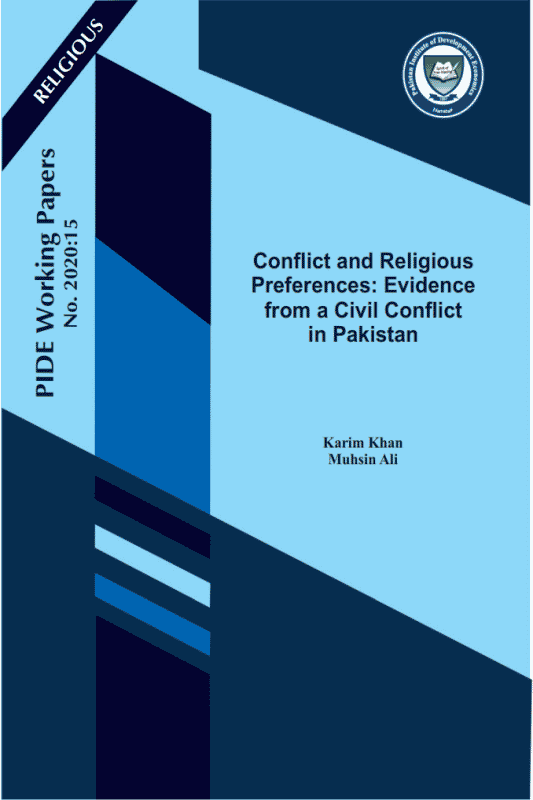
Pakistan Institute of Development Economics
- Home
Our Portals
MenuMenuMenuMenuMenuMenuMenu - ResearchMenuMenuMenuMenuMenuMenuMenu
- Discourse
- The PDR
- Our Researchers
- Academics
- Degree Verification
- Thesis Portal
- Our Portals
Conflict and Religious Preferences: Evidence from a Civil Conflict in Pakistan
In this paper, we study the endogenous structure of religious preferences in post-conflict life. By providing evidence from a civil conflict which occurred in district Swat, Khyber Pakhtunkhwa (KP), Pakistan, we want to see how religious preferences change once individuals are exposed to conflict. We take five aspects of religious preferences, i.e. basic rituals, religious humanistic values, religion-based trust, participation and cooperation. District Buner a neighboring district—is taken as the control district. A random sample of 400 households from each district is selected and Ordinary Least Squares (OLS) and Spatial Regression Discontinuity Design (SRDD) are employed for estimation. We find that exposure to conflict strengthens fundamental rituals and religious humanistic values; however, it lowers trust in religious seminaries and figures along with participation in religious gatherings. Likewise, conflict raises trust and participation in welfare religious organizations; however, it discourages trust and participation in general religious organizations. Furthermore, conflict encourages cooperation with welfare religious organizations; however, it retards cooperation with general religious organizations. The intensity of these effects is influenced by the location of individuals. Alternatively, highly exposed areas exhibit comparatively higher changes in religious preferences as compared to the moderately and least affected areas.



